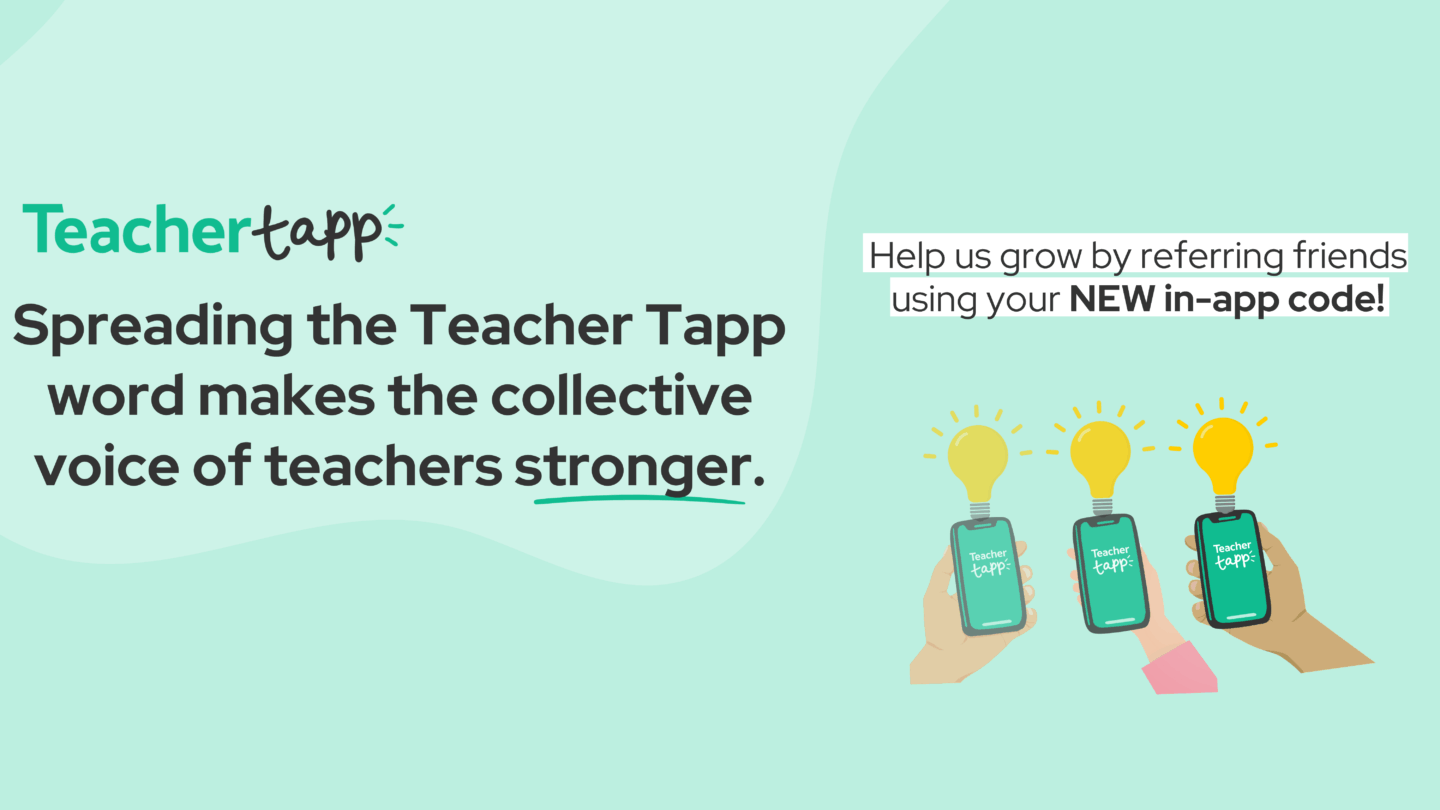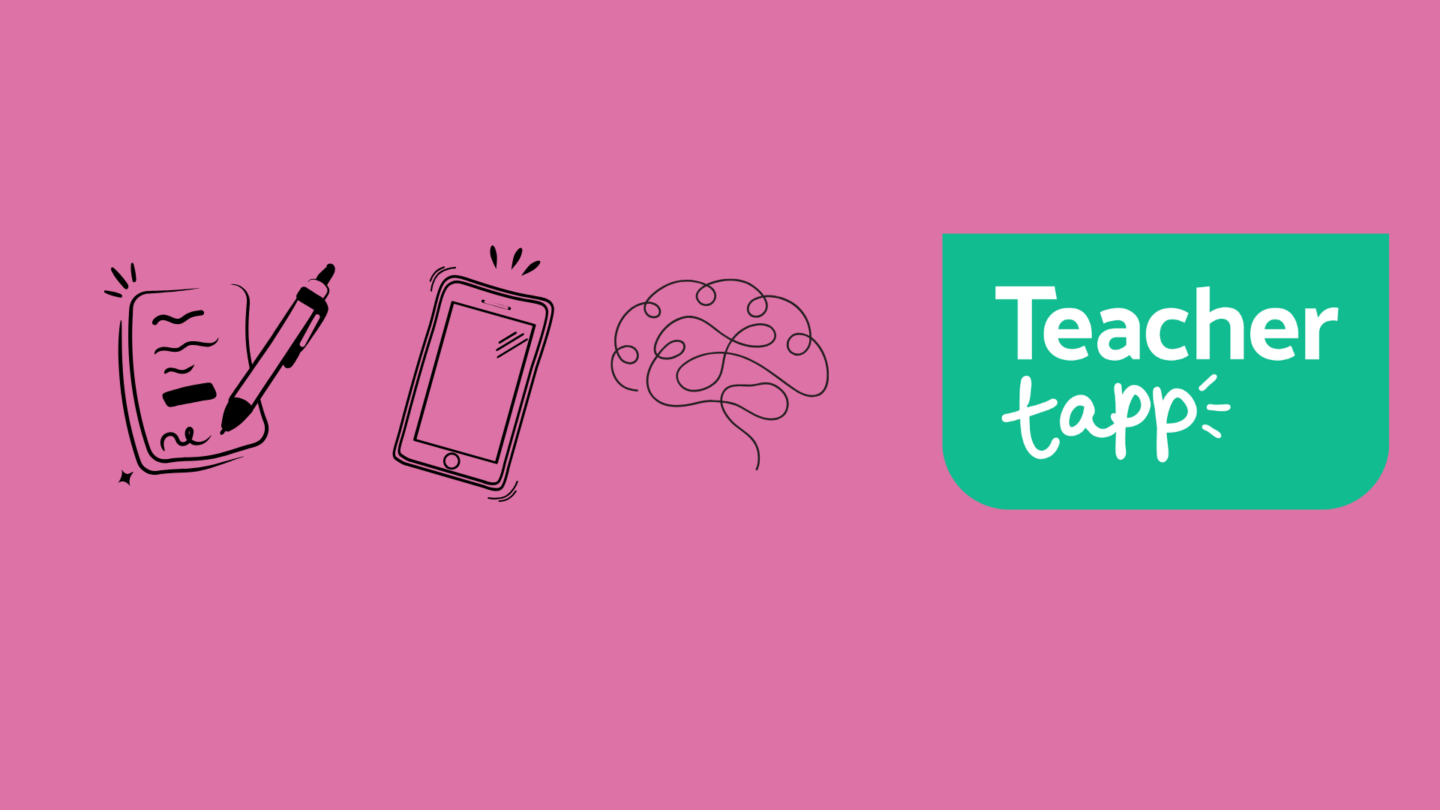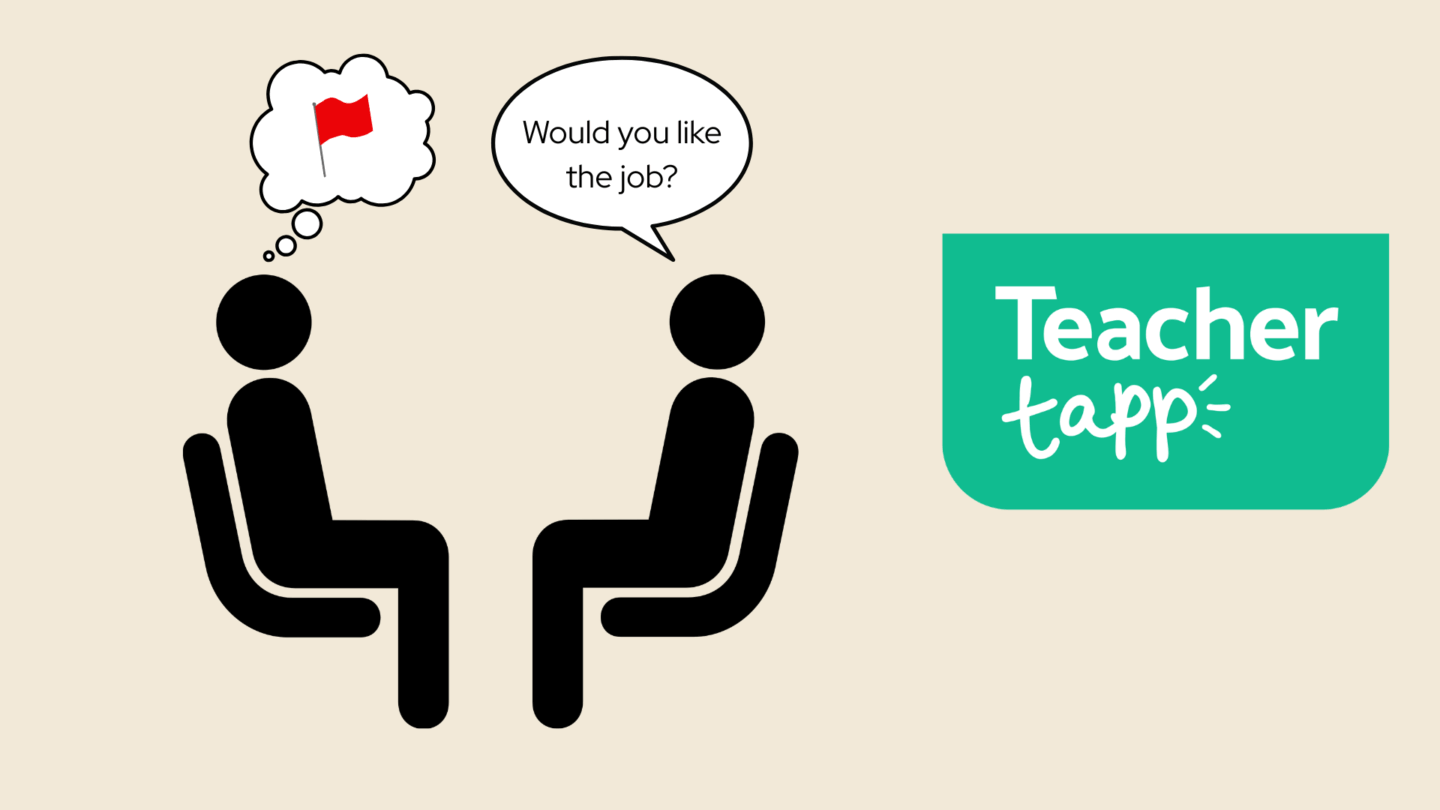Time sinks
This week, we asked what activities take up too much of your time. Behaviour management came out as the biggest single time sink teachers face: almost half of you feel you’re spending too much time on it. This echoes past findings: almost half of teachers say behaviour has caused them “stress or unhappiness” in the last two weeks – and a quarter say that it’s caused them more stress than anything else at work. Making behaviour management easier, or behaviour better, seems like a good target for leadership action.

On other time topics we found several differences between primary and secondary teachers.
Primary teachers were more likely to say they were spending too much time on lesson planning and on marking. Primary teachers were also (slightly) more likely to say they were spending too much time on managing behaviour, which surprised us.
Secondary teachers were more likely to say they were spending too much time teaching lessons.

One of the advantages of climbing the greasy pole is that you get to spend ‘too much’ time on different activities! For example, only 1% of heads say they spend too much time on lesson planning. But half of heads believe they spend too much time on staff management – only 8% of teachers feel the same. Heads are also bothered by how much time they spend on behaviour management. So where does the buck stop on behaviour?

Phone bans
Maybe the buck stops at the DfE. In search of some positive headlines for the Conservative Party Conference, the government announced it was going going to “ban” phones in schools. Which is to say, the government is going to issue non-statutory guidance to recommend heads ban phones.
We looked back at what our existing research tells us about the scale of the problem. Earlier this year, we asked about school policies on mobile phones. Two highlights: first, most schools are already fairly restrictive about phone use: three in five schools don’t permit phone use at any point of the day. Second, these rules are becoming stricter over time. Full write up, including restrictions on teacher phone use, here.

Total bans are sometimes criticised on the grounds that phones can be used for learning purposes. Our 2021 dig into the nuances of phone use in schools also bears rereading. We found that a substantial proportion of secondary teachers allow their students to use phones, for tasks like accessing school email or virtual learning environment, using calculators or revision apps, or just listening to music while working. The most common task though: taking a photo of notes on the whiteboard.
We look forward to seeing whether the government can successfully issue the non-statutory guidance they promise, or whether this goes the same way as the Northern legs of HS2.
Cutting the curriculum
For those of you who felt you were spending too much time on lesson planning, maybe we could make your lives easier by cutting the curriculum?
This week, we asked what topics you would like to see taken out of the curriculum. Topics which were mentioned frequently included:
- Languages in primary school – due to a lack of language teachers
- Multiple maths topics, including Roman numerals in primary, constructions and loci, and exact trigonometric values in Foundation maths – in each case, these were seen as not useful or appropriate for students at that age
- Multiple English topics, including grammar terminology like “fronted adverbials” in primary, which is seen as unnecessary and too complex; analysing anthologies of poetry and outdated texts, and creative writing, which some teachers thought couldn’t be assesssed
- In science, rocks and the rock cycle are considered boring and irrelevant; electrolysis and ceramics as too complex and specialised
- Religious Education – some teachers suggested this should be revised or incorporated into other subjects like PSHE
- History – some teachers feel we spend much too much time on the British Empire
We look forward to government action on this too…
Sinking feelings
We regularly ask how your current job role feels – in part as this is a valuable question for leaders using our School Surveys. There are various positive and motivational emotions to choose between, like having fun, feeling pride or learning a lot.
Having asked this three Autumns in a row, we were disappointed to see a clear trend: the proportion of teachers reporting specific positive emotions continues to fall. The biggest drop is in learning: in 2021, 59% of teachers said they learn a lot; in 2023, that’s fallen to 35%. The biggest positive – challenge has remained high, although even that has fallen.

Influencers
We asked you to name an education influencer (and invited you to choose what influencer meant). “Apart from your good selves,” one Tapper responded, and yes, we did mean apart from ourselves.
By far and away the most frequently-named influence was Mr P ICT, with three times as many nominations as the next person. Another person who stood out on our list was Ms Foster, who offers behaviour management advice.
We were also interested and entertained by those who offered less straightforward responses. Some Tappers rejected the whole idea. “None. Utter cobblers,” wrote one. “Education and influencer shouldn’t belong in the same sentence,” wrote another. A third Tapper said “I don’t remember their names. Woe betide if you disagree with them though. You’re wrong if you do.” (Presumably by not remembering their names, one avoids this woe.)
Politicians got the same rousing support we so often see in our research. “Unfortunately, Gillian Keegan,” said one Tapper. “Rishi bloody Sunak,” said another. A few classic figures were named: Maya Angelou, Richard Feynman, Buckminster Fuller and “Saint John Henry Newman!” all featured.
But we most enjoyed reading responses from Tappers who named colleagues and friends:
- My friend L–. She influences me greatly when we discuss pedagogy.
- My old high school music teacher
- My Head of Department
- My mentor, who is also my boss and friend! Teaching me so much xxx
Which begs the question, what makes an influencer an influencer? Let the final word go to this Tapper: “I don’t care who it is as long as they are full time in the classroom, whilst running a home with kids, spouse and pets in it.”
Ups and Downs
On the rise
📈 The proportion of teachers who know a colleague who left teaching because they found pupil behaviour too difficult to manage. We last asked in 2019. Then, 23% of you said ‘several’; this year, 33% of you said several. Then, 34% of you said no; this year, that figure was just 26%.
Heading down
📉 Fewer of you believe in smart uniforms. In April 2021, 47% of you thought children should wear a smart uniform; now that’s down to 36%.
And finally…
The most read tip of the last week has been: Peer Pressure
And here are the rest for your reference:





